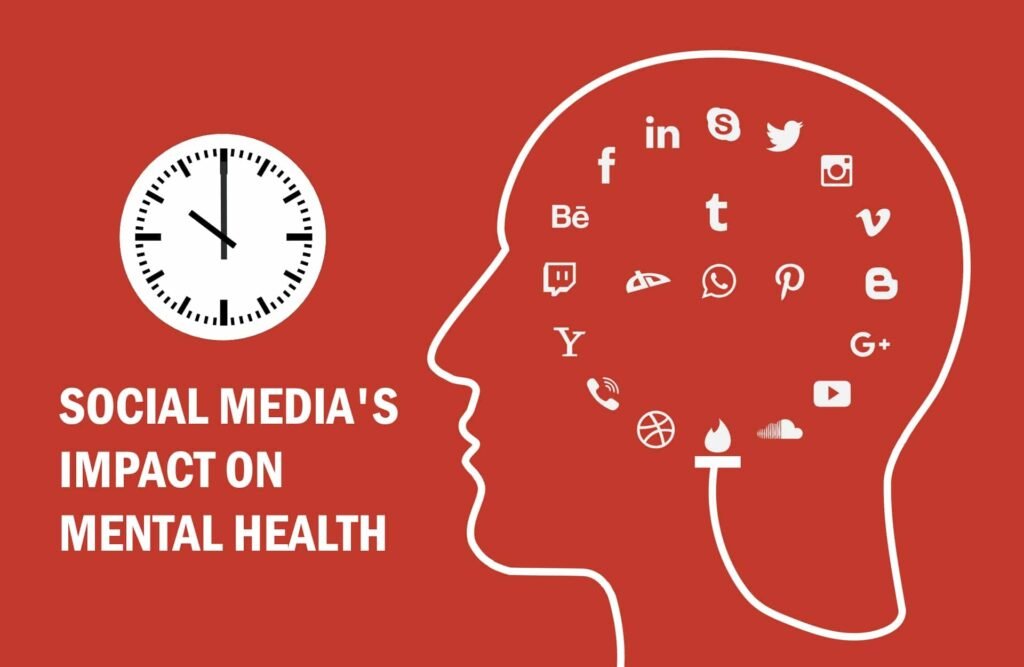The Impact of Social Media on Mental Health
Social media has become an integral part of our daily lives. It allows us to connect with friends and family, share our experiences, and stay up to date with current events. However, the rise of social media has also raised concerns about its impact on mental health. In this blog post, we will explore the various ways in which social media can affect our mental well-being.

We all know how easy it is to get lost in the world of social media, and it can take a toll on our mental health. That’s why taking breaks is one of the best things you can do to limit its negative impact. It’s okay to unplug and give yourself some breathing room. So, go ahead and set some boundaries on your social media use, and make sure to take a break whenever you need it. Remember, it’s not about completely cutting yourself off from social media, but finding a healthy balance that works for you.
1. Comparison and Self-Esteem
Social media platforms often present a distorted reality, where people share their highlight reels and portray a seemingly perfect life. This constant exposure to curated, idealized versions of others’ lives can lead to feelings of inadequacy and low self-esteem. When we compare ourselves to others and feel like we don’t measure up, it can have a negative impact on our mental health.
It’s important to remember that what we see on social media is often a carefully crafted image, and not an accurate representation of someone’s entire life. Taking breaks from social media and focusing on our own accomplishments and strengths can help combat these negative feelings.
2. Cyberbullying and Online Harassment
One of the darker sides of social media is the prevalence of cyberbullying and online harassment. The anonymity provided by the internet can embolden individuals to engage in hurtful behavior towards others. This can have serious consequences for the mental health of the victims.
It’s crucial to create a safe and supportive online environment by reporting and blocking individuals who engage in cyberbullying. Additionally, practicing empathy and kindness towards others can help counteract the negative effects of online harassment.
3. Fear of Missing Out (FOMO)
Social media platforms are designed to keep us engaged and constantly scrolling. This can lead to a fear of missing out (FOMO) on social events and experiences. Seeing others’ posts about parties, vacations, or social gatherings can make us feel excluded and lonely.
To combat FOMO, it’s important to remember that social media only provides a glimpse into someone’s life and doesn’t capture the full picture. Engaging in activities that bring us joy and fulfillment, and cultivating meaningful offline connections, can help alleviate the anxiety and loneliness associated with FOMO.
4. Information Overload and Anxiety
Social media platforms are inundated with news, opinions, and information. While it’s great to have access to a wealth of knowledge, the constant stream of information can be overwhelming and lead to anxiety.
It’s important to curate our social media feeds and follow accounts that provide positive and informative content. Setting boundaries and limiting our screen time can also help reduce the feelings of anxiety associated with information overload.
5. Sleep Disturbances
Using social media before bed has been linked to sleep disturbances. The blue light emitted by screens can interfere with the production of melatonin, a hormone that regulates sleep. Additionally, the constant stimulation from social media can make it difficult to wind down and relax before sleep.
Creating a bedtime routine that doesn’t involve screens and establishing a digital curfew can help improve the quality of our sleep and promote better mental health.
Conclusion
While social media has its benefits, it’s important to be aware of its potential impact on our mental health. By being mindful of our social media usage, curating our feeds, and prioritizing our well-being, we can mitigate the negative effects and create a healthier relationship with social media.
Remember, social media is just one aspect of our lives, and it’s essential to balance our online interactions with real-world connections and self-care.




